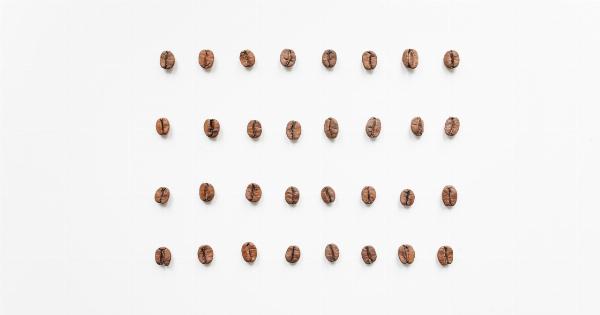Coffee is one of the most widely consumed beverages in the world. It is loved by many for its rich aroma and the burst of energy it provides.
While some people drink coffee purely for its taste, others rely on it to kickstart their day and stay productive. However, in recent years, coffee has also gained attention for its potential health benefits, particularly for the liver.
The Importance of the Liver
The liver is a vital organ responsible for multiple functions in the body. It plays a crucial role in detoxification, protein synthesis, hormone production, and the metabolism of carbohydrates, fats, and drugs.
Maintaining a healthy liver is essential for overall well-being.
The Link Between Coffee and Liver Health
Several studies have suggested that coffee consumption may have a protective effect on the liver.
In fact, coffee has been associated with a lower risk of developing liver diseases, such as liver cancer, non-alcoholic fatty liver disease (NAFLD), alcoholic liver disease (ALD), and cirrhosis.
Coffee and Liver Cancer
Liver cancer is one of the most prevalent types of cancer worldwide. Research has indicated that regular coffee intake may reduce the risk of liver cancer.
A meta-analysis of observational studies found that individuals who consumed coffee had a significantly lower risk of liver cancer compared to those who did not.
The potential protective effect of coffee against liver cancer could be attributed to its anti-inflammatory and antioxidant properties.
Coffee consumption has been linked to a reduction in liver inflammation and the prevention of DNA damage, both of which are significant factors in the development of liver cancer.
Coffee and Non-Alcoholic Fatty Liver Disease (NAFLD)
Non-alcoholic fatty liver disease (NAFLD) is a condition characterized by the accumulation of fat in the liver, not caused by excessive alcohol consumption.
NAFLD can progress to more severe conditions, such as non-alcoholic steatohepatitis (NASH) and cirrhosis. Emerging research suggests that coffee consumption may play a role in preventing and managing NAFLD.
A systematic review and meta-analysis of studies found that regular coffee drinkers had a lower risk of developing NAFLD compared to non-coffee drinkers.
The review also revealed that higher coffee intake was associated with a decreased risk of liver fibrosis, a stage of liver damage that can be irreversible if not treated promptly.
Coffee and Alcoholic Liver Disease (ALD)
Alcoholic liver disease (ALD) is caused by excessive alcohol consumption and can lead to liver inflammation, fibrosis, and cirrhosis. Studies have indicated that coffee consumption may provide some protection against ALD.
Research has shown that individuals who drink coffee have a lower risk of developing alcoholic cirrhosis compared to those who do not.
The beneficial effect of coffee on ALD may be due to its ability to suppress liver inflammation and reduce oxidative stress. However, it is important to note that coffee cannot reverse the damage caused by excessive alcohol consumption.
Coffee and Cirrhosis
Cirrhosis is a progressive liver disease characterized by the development of scar tissue, which replaces healthy liver tissue. It is often caused by alcohol abuse, viral hepatitis, or fatty liver disease.
Consuming coffee has been associated with a reduced risk of developing cirrhosis.
A systematic review and meta-analysis found that coffee intake was inversely associated with the risk of cirrhosis.
The study suggested that each additional cup of coffee consumed per day was associated with a lower risk of developing cirrhosis, particularly in individuals at high risk, such as those with liver disease or a history of heavy alcohol consumption.
How Many Cups of Coffee a Day?
While there is evidence suggesting a positive association between coffee consumption and liver health, it is essential to consider moderation.
The optimal amount of coffee for liver health may vary depending on individual factors such as age, overall health, and sensitivity to caffeine.
According to a study published in the Clinical Gastroenterology and Hepatology, coffee consumption of 2 to 3 cups per day has been associated with the greatest reduction in liver disease progression, including a lower risk of fibrosis, cirrhosis, and hepatocellular carcinoma.
However, it is important to note that excessive caffeine intake from coffee can lead to negative effects such as sleep disturbances, anxiety, and digestive issues.
It is recommended to consult with a healthcare provider to determine the appropriate amount of coffee for your individual circumstances.
Conclusion
Coffee consumption has been linked to several potential benefits for liver health, including a reduced risk of liver cancer, non-alcoholic fatty liver disease, alcoholic liver disease, and cirrhosis.
The exact mechanisms behind these protective effects are still being studied, but coffee’s anti-inflammatory and antioxidant properties are believed to play a role.
While moderate coffee consumption can be part of a healthy lifestyle, it is crucial to remember that individual tolerance and overall health should be considered.
Consulting with a healthcare professional can help determine the optimal amount of coffee for promoting liver health while avoiding potential negative effects.






























